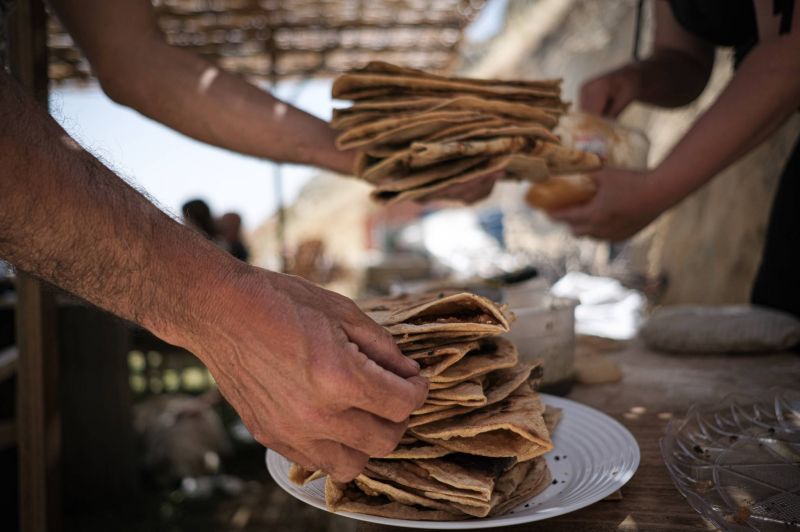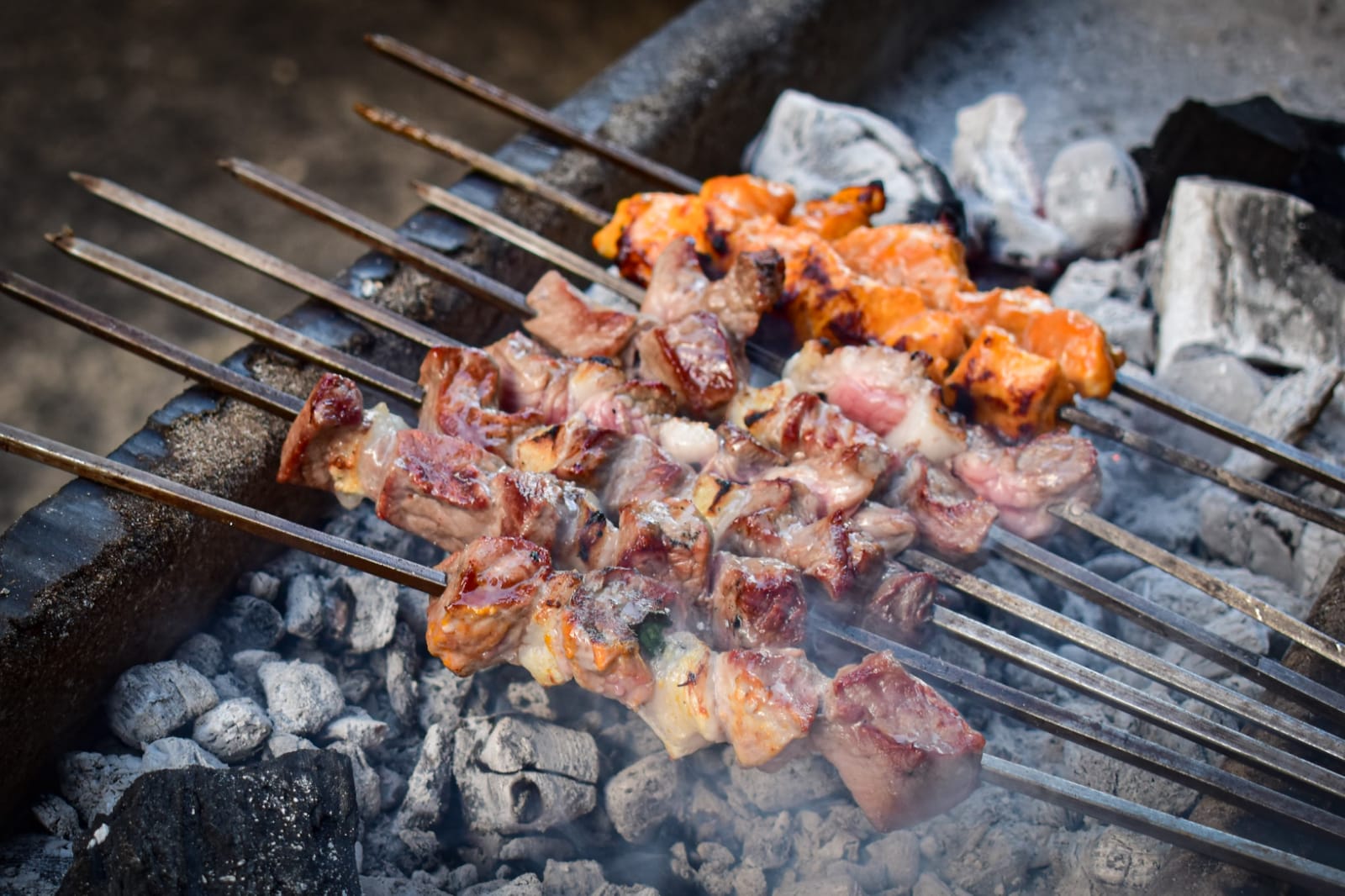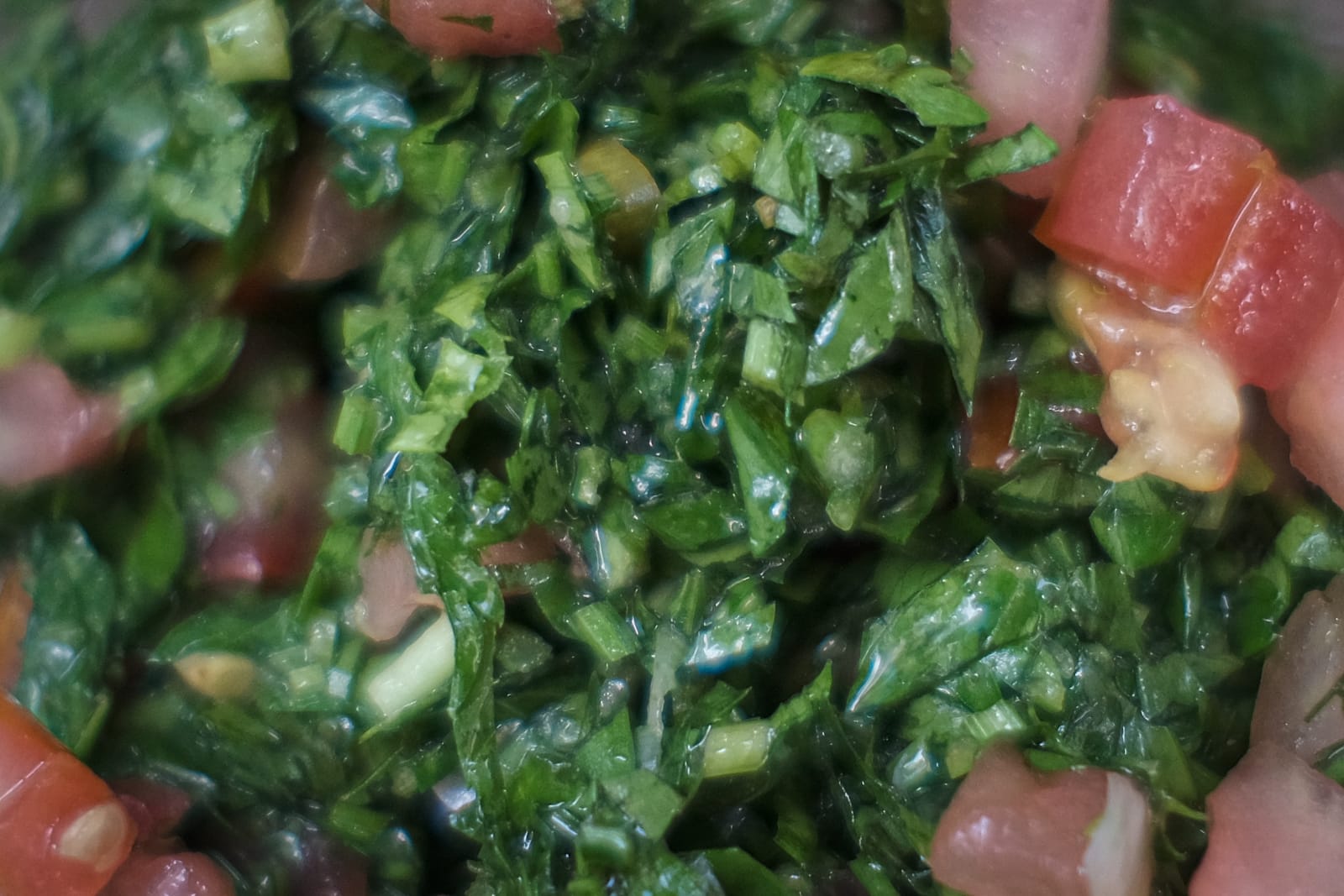
Manaeesh in Lebanon. (Credit: João Sousa/L'Orient Today/File photo)
BEIRUT — As temperatures continue to rise in Lebanon, so do cases of food poisoning.
L’Orient Today talked to two doctors to explain the causes of food poisoning, the preventive measures one can take, and the treatment options.
“Food poisoning is an illness caused by eating contaminated food,” Dr. Mahmoud Hallal, a gastroenterologist who runs a private clinic in Dahieh, Beirut’s southern suburbs, explains to L’Orient Today.
In most cases of food poisoning, the person has eaten contaminated food from a restaurant.
Many common restaurant sauces contain mayonnaise or tartar sauce and should be refrigerated 24/7. However, Hallal explains, most restaurants turn off the electricity when they close, leaving those sauces unrefrigerated.
“One of the best ways to avoid food poisoning, especially when eating outside during the summer holiday, is to simply not add any sauces to your meals,” says Hallal. “You can enjoy your tawouk sandwich and other wraps sauce-free, or possibly face a few days of bad food poisoning.” Chicken meat gets cooked in a barbecue set outside a takeaway establishment in Beirut (Credit: João Sousa/L'Orient Today/File photo)
Chicken meat gets cooked in a barbecue set outside a takeaway establishment in Beirut (Credit: João Sousa/L'Orient Today/File photo)
“Try to have your fresh juices without ashta (a cream made from full-fat milk) as it also needs to be constantly refrigerated and most fruit juice places in Lebanon don’t have the means to constantly keep the electricity on at all times, ” he continues.
For those cooking at home, Hallal advises that people buy small quantities of food, especially if they can’t keep their refrigerator on consistently due to power cuts.
“For young people, there is usually nothing to worry about. The body will fight it on its own and all they have to do is stick to a diet of boiled potato, (properly-stored) yogurt, rice, and lots of water to avoid dehydration,” Hallal explains.
However, he notes that if the person “is continuously vomiting any liquids he or she is drinking, they should immediately go to the doctor.”
If the person doesn’t feel better within a few days, they should also visit a doctor, adds Hallal, but stresses that that is rarely the case for young people.
Young children and the elderly often need to take antibiotics to completely recover, he says. Tabbouleh, one of the most iconic and beloved dishes in Lebanon (Credit: João Sousa/L'Orient Today/File photo)
Tabbouleh, one of the most iconic and beloved dishes in Lebanon (Credit: João Sousa/L'Orient Today/File photo)
Extra care for children
Pediatrician Dr. Antoine Abou Fadel tells L’Orient Today that food poisoning in children is more serious than in adults because children “are more prone to dehydration.”
“The younger the child, the more dangerous it is,” he explains.
Abou Fadel advises parents to only let their children drink bottled mineral water, as it is the safest option and not prone to contamination.
“They should avoid eating food that was left in the fridge after electricity cuts,” Abou Fadel explains.
He also advises against feeding children food from beach and swimming pool cafeterias,as their food is usually left in high temperatures.
At home, "vegetables should also be sanitized using a mixture of white vinegar and water before eating them raw," he adds.
In the event that a child is suffering from food poisoning, they should only be fed small quantities of food, and the child should drink a lot of liquids.
However, Abou Fadel advises that "it’s best for a child to visit the hospital in case of food poisoning because matters could escalate quickly."